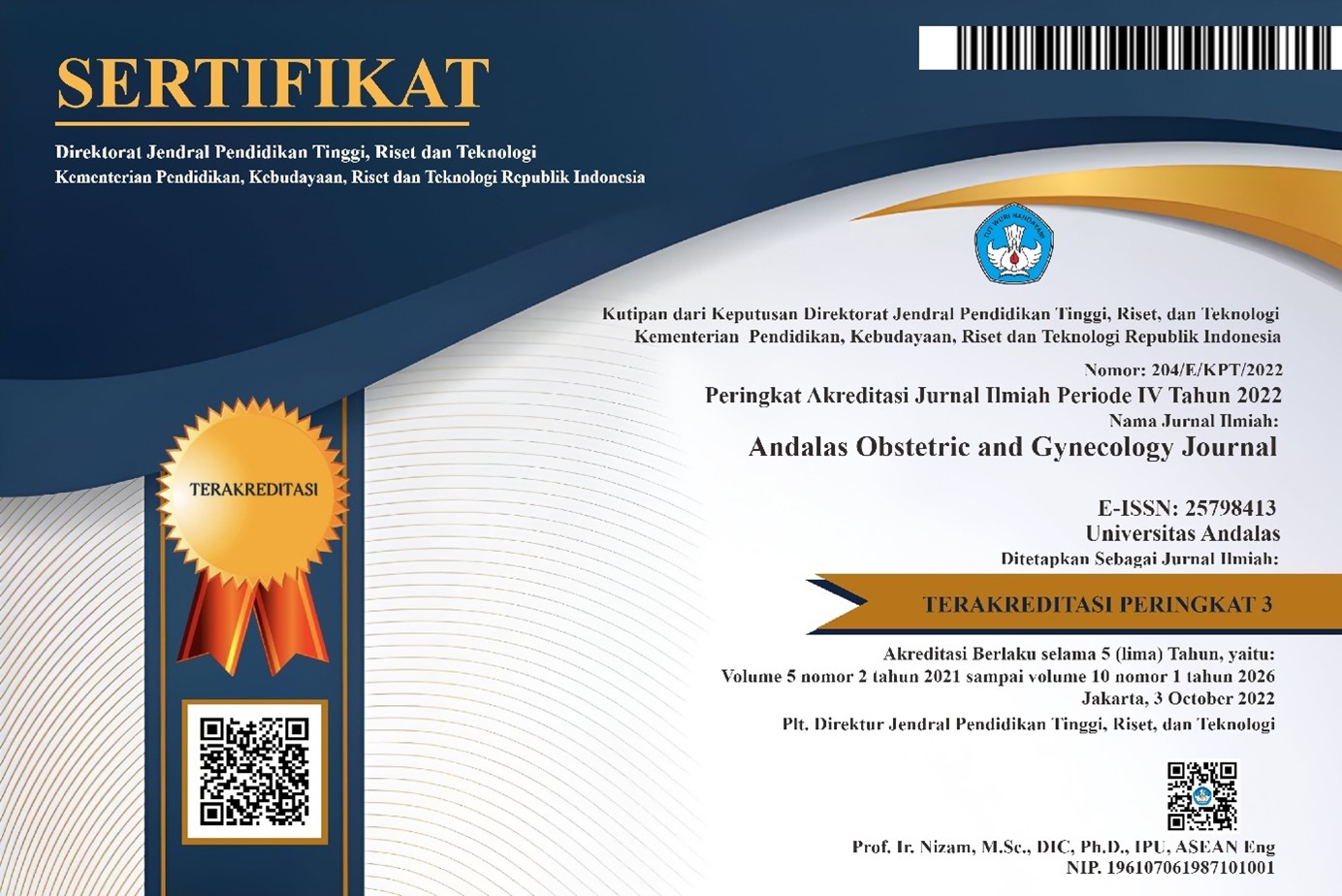Comparison Of Lactobacillus Plantarum, Lactobacillus Mucosae And Lactobacillus Farciminis Bacteria Between Polycystic Ovary Syndrome And Non Polycystic Ovary Syndrome Students At Medical Faculty Of Andalas University
DOI:
https://doi.org/10.25077/aoj.8.2.732-745.2024Keywords:
Polycystic Ovary Syndrome, Gut MicrobiotaAbstract
Background: Polycystic Ovary Syndrome (PCOS) is a disorder characterized by hyperandrogenism, ovulatory dysfunction, and morphological features of polycystic ovaries. It is associated with insulin resistance and hyperinsulinemia. Gut microbial dysbiosis plays a role in PCOS, which is associated with insulin resistance, hyperandrogenism, chronic inflammation, and metabolic syndrome. PCOS treatment with Probiotics maintains the stability and diversity of the gut microbiome.
Objective: To determine the comparison of Lactobacillus plantarum, Lactobacillus mucosae, and Lactobacillus farciminis Bacteria Between Polycystic Ovary Syndrome and Non Polycystic Ovary Syndrome Students at the Medical Faculty of Andalas University.
Method: This research was an analytic observational study using a cross-sectional method conducted on female students with Polycystic Ovary Syndrome and Non-Polycystic Ovary Syndrome at the Medical Faculty of Andalas University.
Results: Bivariate analysis of microbiota comparison of female students with PCOS and without PCOS, Mann-Whitney Test on L.mucosae (p=0.774), while Independent T-Test analysis on L.farciminis (p=0.006).
Conclusion: There is a decrease in microbiota L. Mucosae in female students with PCOS, but there is no significant difference. There is a significant comparison in the number of microbiota L.farciminis in female students with and without PCOS at FK Unand.
Downloads
Published
Issue
Section
License
Copyright (c) 2024 Mentari Faisal Putri, Haviz Yuad, Andani Eka Putra

This work is licensed under a Creative Commons Attribution 4.0 International License.
Copyright
Authors who publish with this journal agree to the following terms:
- Authors retain the copyright of published articles and grant the journal right of first publication with the work simultaneously licensed under a Creative Commons Attribution 4.0 International License that allows others to share the work with an acknowledgment of the work's authorship and initial publication in this journal.
- Authors are able to enter into separate, additional contractual arrangements for the non-exclusive distribution of the journal's published version of the work (e.g., post it to an institutional repository or publish it in a book), with an acknowledgment of its initial publication in this journal.
- Authors are permitted and encouraged to post their work online (e.g., in institutional repositories or on their website) prior to and during the submission process, as it can lead to productive exchanges, as well as earlier and greater citation of published work (See The Effect of Open Access).
License:
Andalas Obstetrics and Gynecology Journal (AOJ) is published under the terms of the Creative Commons Attribution 4.0 International License. This license permits anyone to copy and redistribute this material in any form or format, compose, modify, and make derivatives of this material for any purpose, including commercial purposes, as long as they credit the author for the original work.







